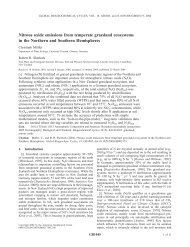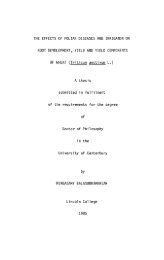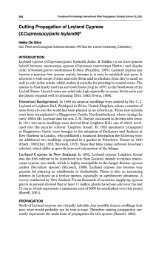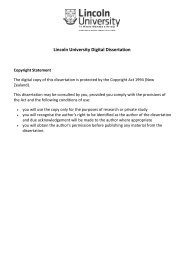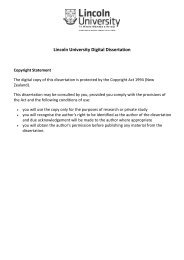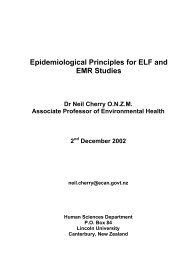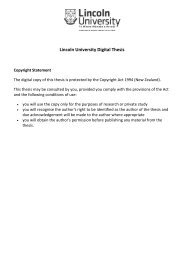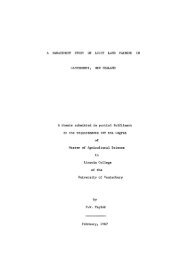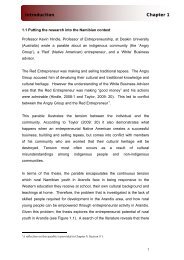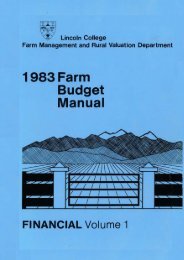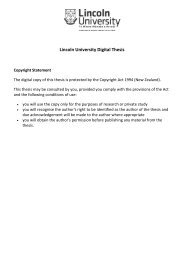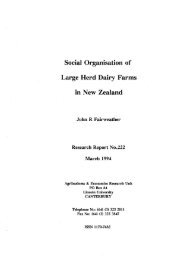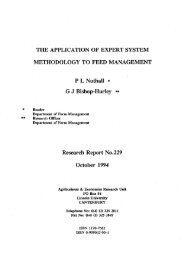Lincoln University Digital Dissertation - Lincoln University Research ...
Lincoln University Digital Dissertation - Lincoln University Research ...
Lincoln University Digital Dissertation - Lincoln University Research ...
You also want an ePaper? Increase the reach of your titles
YUMPU automatically turns print PDFs into web optimized ePapers that Google loves.
Taewa are described as a taonga, a treasured possession whose care and<br />
conservation is a matter of historical record and contemporary pride and<br />
interest for Maori (Lambert, 2007). Grower 2 builds on this description<br />
commenting that “…we say that we had a whakapapa to them [taewa]”. Part<br />
of the reason taewa are held in such high regard is that they provide a link to<br />
a most precious resource – the whenua. Although taewa are considered a<br />
special crop in their own right, they can also facilitate a connection, a<br />
traditional link to the whenua for Maori. By cultivating taewa, growers are able<br />
to connect with the land in a traditional manner of caring and nurturing,<br />
continuing a relationship Maori have shared for generations.<br />
A traditional Maori worldview is based on whakapapa and represents a means<br />
for describing and relating aspects of the world we live in including all<br />
components of the whenua. The association with whakapapa and Maori<br />
identity has shown that taewa production has contributed to the well-being of<br />
Maori in this case study and can positively contribute to Maori sustainable<br />
development.<br />
5.2.2 Maori values<br />
Rokeach (1968: 60) suggests that values are located centrally within people’s<br />
overall belief system, and provide the standards against which we generate<br />
and maintain attitudes towards the world (both tangible and intangible) around<br />
us. Described as ‘abstract ideals’ (both positive and negative) and ‘moral<br />
conceptualisations’, values are learned and enduring (Rokeach, 1968: 124).<br />
Traditional values are highly relevant in modern day Maori society and<br />
fundamental for forming principles and a guiding philosophy for culturally<br />
based sustainable development (Harmsworth, 2002). Grower 1 illustrates the<br />
relevance and significance of traditional Maori values as an application of<br />
Maori identity:<br />
61



